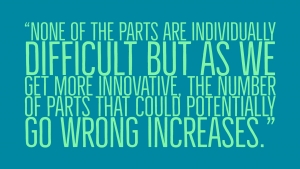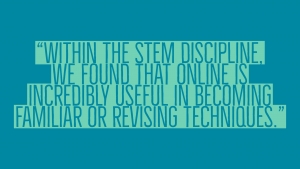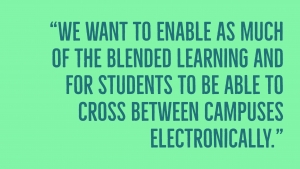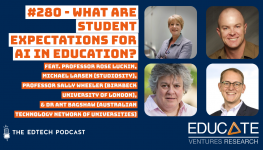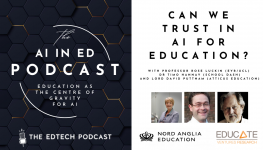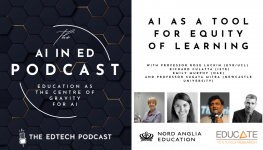#97 – The rise in Online Education: Benefits and Challenges
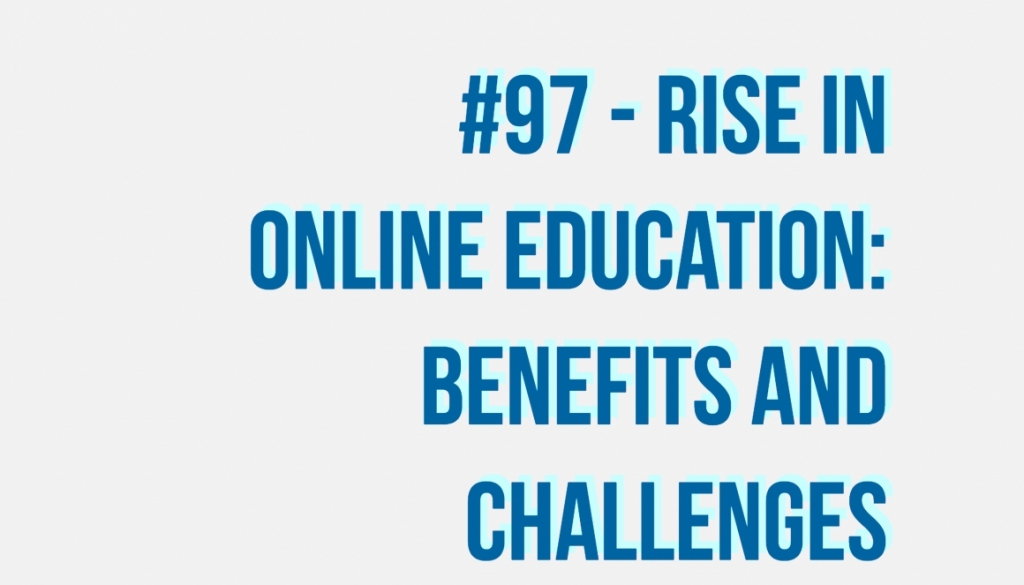
Podcast: Play in new window | Download
Subscribe on iTunes, Stitcher, TuneIn
What’s in this episode?
The benefits of digital education are many: Enrichment materials. Preparatory resources. Rich visualizations. Distance learning. Blended learning. Remedial Support. Ease-of-delivery. Consistency. Innovation. Automatic grading. Competitive opportunities. Powerful assessments. Philanthropic initiatives. But, there are challenges to overcome. In this podcast, we hear from Jim Cooper, the President and CEO, of Maplesoft and Nicola Wilkin, Director of Education College of Engineering and Physical Sciences, at the University of Birmingham to explore benefits, challenges and a few best practice tips for embedding online education (including co-creating edtech materials with students). .
This week we are in takeover with Maplesoft to explore the benefits and challenges of online education.
Online education has seemingly exploded in recent years and is a staple subject on The Edtech Podcast. We’ve looked at online tutoring with the CEO of VIPKids Cindy Mi in episode 83, and we’ve reviewed higher education and MOOCs with Class Central and Future Learn CEOs in episode 67. But how much is really changing on the ground for Universities and colleges? The aspirations of UK body FELTAG or the Further Education Learning Technology Action Group to have 50% of teaching online by 2017 were never really met and now seem wildly ambitious. Among UK Universities, the introduction of the Teaching Excellence and Student Outcomes Framework Specification or (TEF) in 2016 has placed emphasis on student learning and student outcomes as opposed to purely research excellence. In this newer context, TEF GOLD – the highest standard – is awarded to those which recognise the following aspects of quality: Teaching Quality (TQ), Learning Environment (LE), and Student Outcomes and Learning Gain (SO). Where does online fit in with all this? Well, it doesn’t dominate, but it does feature. Teaching quality refers to seminars, tutorials, project supervision, laboratory sessions, studio time, placements, supervised online learning, workshops, fieldwork and site visits. The emphasis is on teaching that provides an appropriate level of contact, stimulation, and challenge, and which encourages student engagement and effort. Outstanding physical and digital resources are those which are recognised to be actively and consistently used by students to enhance learning and if we look at one of the TEF Gold standard universities – Coventry – their report shows that they
Used a comprehensive and embedded approach to personalised learning which maximised rates of retention, attainment, and progression. They also used outstanding physical and digital resources which pervaded all aspects of the student experience, including state-of-the-art integration of learner analytics, student support, and timetabling.
But how pervasive is this experience? I still hear University insiders vent their frustration against massive budgets immediately spent on bricks and mortar lecture halls instead of expanding online learning opportunities. Should we be concerned about this? In this episode I chat to a provider – Jim Cooper, Maplesoft’s President and CEO – and another Gold standard TEF university – represented by Nicola Wilkin the Director of Education at the College of Engineering and Physical Sciences at the University of Birmingham – to explore the challenges and opportunities of online teaching and learning.
People
 Sophie is the founder of the iTunes new and noteworthy, The Edtech Podcast. The mission of The Edtech Podcast is to improve the dialogue between ‘ed’ and ‘tech’ for better innovation, through storytelling. The podcast is downloaded 1500+ times a week, from up to 109 countries with the UK, US & Aus in the top 3. Sophie is a mentor and advisor within the edtech community. If she’s not interviewing a University Lecturer, School Leader, Ex-Angry Bird, NGO, or Investor about education innovation, she’s chasing her three year old around the park or binge-reading Homo Deus.
Sophie is the founder of the iTunes new and noteworthy, The Edtech Podcast. The mission of The Edtech Podcast is to improve the dialogue between ‘ed’ and ‘tech’ for better innovation, through storytelling. The podcast is downloaded 1500+ times a week, from up to 109 countries with the UK, US & Aus in the top 3. Sophie is a mentor and advisor within the edtech community. If she’s not interviewing a University Lecturer, School Leader, Ex-Angry Bird, NGO, or Investor about education innovation, she’s chasing her three year old around the park or binge-reading Homo Deus.
James (Jim) Cooper has successfully built Maplesoft into the world’s premier advanced mathematics, modeling and simulation software provider. He is responsible for the company’s financial performance, and oversees all aspects of the company’s operations including strategic business planning, product direction as well as sales and marketing.
Cooper brings over 20 years of experience in corporate management of advanced technology business ventures to his role as President and CEO of Maplesoft. Prior to joining Maplesoft, Cooper co-owned WESCAM, the highly successful manufacturer of gyro-stabilized camera pods used extensively in both the security and entertainment industries. In addition, he successfully started and developed Puppetworks.com, makers of motion capture devices for the 3D animation industry. Cooper has held senior positions with a number of high technology companies. He was Worldwide Director for Intelligent Networks with Sema Wireless Group; Divisional Manager at Alias-Wavefront, a world renowned 3D graphics company; and Development Manager at CAE, makers of advanced aircraft flight simulators.
Cooper graduated on the Dean’s honor list from the University of Waterloo in 1980 with a Bachelor’s of Engineering and started his career as a control engineer, developing advanced control systems for aircraft flight simulators.
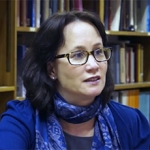 Nicola Wilkin is a Professor in the School of Physics and Astronomy. Her research is in the areas of ultracold gases (three citation classics) and the flow mechanisms of vortices in mesoscopic superconductors.
Nicola Wilkin is a Professor in the School of Physics and Astronomy. Her research is in the areas of ultracold gases (three citation classics) and the flow mechanisms of vortices in mesoscopic superconductors.
Nicola is Director of Education for the College of Engineering & Physical Sciences. Particular focus is on the creation of a platform for self-paced, automatic learning for mathematically based modules. This work is being undertaken in partnership with the software developers, MapleTA.
Nicola has a long standing interest in improving the representation of Women in Physics and has been Hon Secretary of the Institute of Physics Women in Physics Group as well as being a member of the University Diversity Forum. She co-chaired (alongside then Head of School, Prof Andy Schofield) the School’s successful equality awards: Institute of Physics JUNO Champion and Athena SWAN Silver submission.
Nicola co-ordinates the current topics in theoretical physics module, including the mock interview process which is provided in partnership with Forresters the intellectual property firm.
- She is the local organising Chair of the International Conference on Women in Physics, 2017
- She is the Academic Advisor for oSTEM (Out in Science, Technology, Engineering and Maths)
Quotes from this episode
References
More reading
Whitepapers
- The Evolution and Revolution of Online Education
- Challenges and Solutions in Automated STEM Assessment
- Integrating Maple into the Math Curriculum: A Systematic Guide
Case Studies
- University of Waterloo Improves Learning & Saves Money with Maple T.A.
- Enhancing the Student Learning Experience with Maple
- University of Manchester uses Maple
Tell us your story
We’d love to hear your thoughts on online learning. Leave your stories in the comments below. Alternately, record a quick free voicemail via speakpipe for inclusion in the next episode. Finally, you can post your thoughts or follow-on links via twitter @podcastedtech @maplesoft or via The Edtech Podcast Facebook page.

